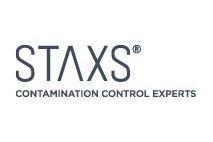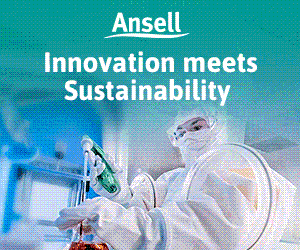When choosing protective apparel there is a choice between washable or disposable garments. The first option seems to be the most cost-effective at first sight, but according to Netherlands-based TAC – a specialist in the field of disposable garments for the pharmaceutical, biotechnological and food industries – that this is not necessarily the case.
Usually it is said that washable clothing can be washed 100 times before it loses its suitability, but one must ask whether the quality going to be affected after 90 or 99 washings?
Disposable clothing can easily be sterilised through gamma irradiation – a requirement for many cleanrooms. Washable polyester clothing can be irradiated but this immediately shortens the garment’s life-span.
From a social responsibility aspect, it is often assumed that the use of disposable clothing is more harmful to the environment. However, in order to assess this issue one also needs to look at the processes necessary to clean garments for reuse. Washing clothing requires energy and chemicals in addition to the increased energy used for transportation of the goods to and from the customer. These factors generally result in a higher cost price of washable garments than of disposable garments.
Disposable clothing on the other hand offers guaranteed quality, comfort, is better for the environment and saves money.
TAC has its own manufacturing site in China, making strict quality checks possible on all products, to ensure a constant high quality. TAC products are packed in clearly branded boxes, each of which is provided with a lot number, expiry date and production date.
The company’s facility in Heerenveen, meanwhile, offers space for three Class A cleanrooms where products are specially packed for cleanroom use or to be irradiated afterwards.
TAC garments can be made of polypropylene and polyethylene. Most of these garments are made of Tyvek, a non-woven material with an antistatic effect. Shoe covers, sleeve covers and hoods are also available.
While TAC has traditionally served markets in the Netherlands and in Belgium, several other European countries have joined the list in the past year. To accommodate the increase in the number of requests from abroad a new department has been set up to handle exports through the company’s distributors in Ireland, Spain, Norway, Sweden, Hungary and Slovenia.





